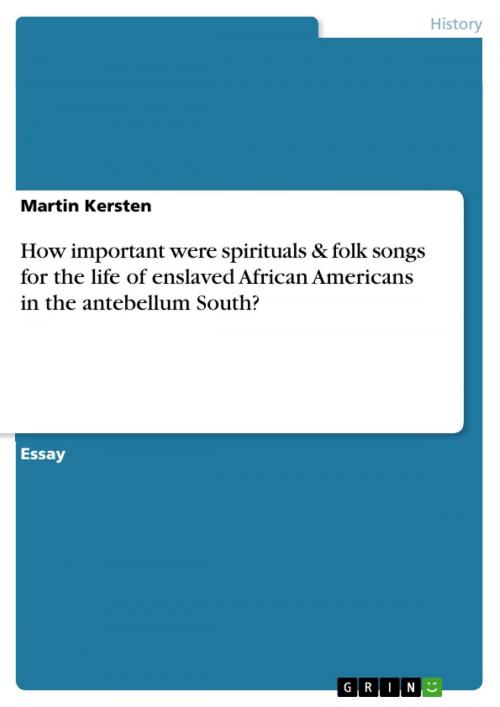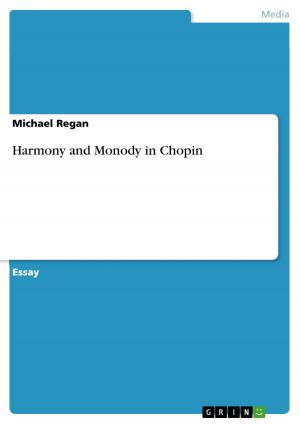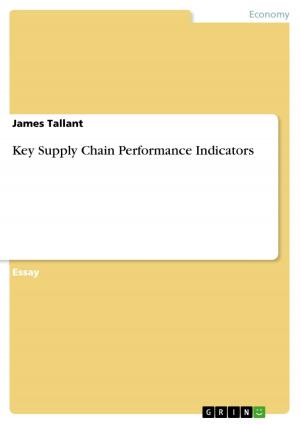How important were spirituals & folk songs for the life of enslaved African Americans in the antebellum South?
Nonfiction, History, Americas, United States| Author: | Martin Kersten | ISBN: | 9783640801961 |
| Publisher: | GRIN Publishing | Publication: | January 17, 2011 |
| Imprint: | GRIN Publishing | Language: | English |
| Author: | Martin Kersten |
| ISBN: | 9783640801961 |
| Publisher: | GRIN Publishing |
| Publication: | January 17, 2011 |
| Imprint: | GRIN Publishing |
| Language: | English |
Essay from the year 2010 in the subject History - America, grade: 1,3, York University, language: English, abstract: Every study of the culture of black people in America inevitably reveals statements about the relationship between black and white Americans. In this essay this will not be a side effect but intended. On the following pages I want to put up the question whether spirituals - songs of black Christian Afro-Americans - can be simply seen as sorrow songs (as stated above) that only had one aim: to create a platform for black people to express their feelings, fears and their pain; or whether those songs can be interpreted as a motor for the black mass to draw the attention on the deficiency of a whole community, and eventually to achieve cultural, social and political changes. The subject of my investigation, then, is the social function of black music in America before the Civil War.
Essay from the year 2010 in the subject History - America, grade: 1,3, York University, language: English, abstract: Every study of the culture of black people in America inevitably reveals statements about the relationship between black and white Americans. In this essay this will not be a side effect but intended. On the following pages I want to put up the question whether spirituals - songs of black Christian Afro-Americans - can be simply seen as sorrow songs (as stated above) that only had one aim: to create a platform for black people to express their feelings, fears and their pain; or whether those songs can be interpreted as a motor for the black mass to draw the attention on the deficiency of a whole community, and eventually to achieve cultural, social and political changes. The subject of my investigation, then, is the social function of black music in America before the Civil War.















